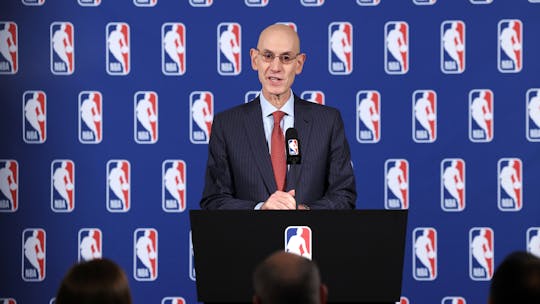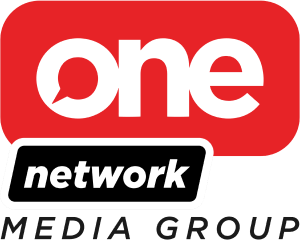LAS VEGAS — “Take” fouls? The NBA’s Board of Governors chose instead Tuesday to leave them.
Say goodbye this coming season to those anticlimactic, clock-stopping, not-at-all scintillating plays. Or at least, expect to see far fewer with this rule change that dials up the penalty when a defender intentionally commits a “transition take foul” to thwart his opponent’s breakout opportunity.
Previously, a side-out inbounds situation or at worst (in the bonus) a pair of free throws was deemed a small price to pay, compared to chasing the other team and the ball downcourt for a high-percentage scoring chance.
Now the team whose break was stopped will get one free throw — which can be shot by any of its players on the floor — and retain possession anyway.
The Board’s meetings wrapped up essentially at the midpoint of the NBA 2K23 Summer League, and commissioner Adam Silver shared some numbers touting its success as a combo of basketball development, entertainment attraction and unofficial league meetings.
“It’s quite remarkable what this has turned into,” Silver said. “I’m told we will have an economic impact on Las Vegas of roughly $125 million, that we will fill 70,000 hotel rooms over the course of the time we’re here and that we will sell approximately 135,000 tickets.”
The summer leagues in 2022 — including short, earlier ones in San Francisco and Salt Lake City — already instituted the penalty for transition take fouls that will go into effect at the NBA level this fall. Anecdotal evidence suggests the problem is diminished.
Why? Coaches typically hate giving away free points with zero benefit, so the NBA expects this to act as a heightened deterrent. The owners and members of the NBA Competition Committee, meanwhile, disliked the effect on the floor — losing out on fast breaks, the source of so many highlight moments.
Byron Spruell, NBA president of league operations, told reporters after Silver’s news conference there were approximately 1,700 instances of take fouls being deployed. The committee debated whether a harsher penalty — two free throws and the ball — should be applied but settled on this half-measure, expecting a notable reduction in the plays.
A couple of clarifications came with the rule change:
• In the final two minutes of the fourth quarter and the last two minutes of any overtime period, the heightened penalty will not apply. The defensive team still will be able to foul, either to stop the clock in an attempted comeback or to prevent the offensive team from generating a 3-point attempt.
• The take-foul penalty will not apply if the offensive player is fouled in the act of shooting, in which case it will be treated as in the past.
In other BOG business:
• The governors voted to make permanent the Play-In Tournament, which began on a trial basis after the 2020-21 season and extended for the season recently completed. In the Play-In, the teams that finish seventh through 10th in each conference vie to secure the seventh and eighth playoff berths. The tourney is staged between the end of the regular season and the start of the actual playoffs.
• Former players from the defunct American Basketball Association will be eligible for what the NBA is calling “recognition payments” in a program funded jointly by the league and the current players’ union. An estimated 115 surviving players who logged at least three seasons in the ABA but did not qualify for the NBA pension plan will receive $3,828 annually per year of service.
The ABA, begun as a rival league and the source of bad blood from some NBA owners due to competing for players and increasing salaries, lasted nine season from 1967-68 through 1975-76.
• Silver said the league surpassed $10 billion in revenue for the season just completed. Not only is that a record for the NBA, “it’s quite remarkable from where we came in only two-and-a-half years ago when … the future of this industry was in question, in part because of the pandemic,” he said. Every 2022 playoff game, the commissioner added, was a sellout.
• While WNBA star Brittney Griner continues to be detained in Russia after violating an illegal drug law there, Silver said he believes the NBA has properly allowed the U.S. State Department and the Biden White House administration to take the lead in negotiating her release.
• More than once at Silver’s media sessions over the past couple years, the topic of NBA players under contract asking for trades has come up. The players’ names change – Anthony Davis, Kyrie Irving, James Harden – but the principle remains the same. It came up again in the wake of Brooklyn star Kevin Durant recently going public with his desire to be traded from the Nets.
Durant has yet to be paid a dime from the reported four-year, $194 million contract extension he signed before last season. He allegedly has designated a short list of contending teams to which he prefers to be dealt. It’s a hardship for teams not on his list and a bad look for the league.
“No one has suggested to me that Kevin Durant has said he’s not willing to live up to the terms of his contract,” Silver said. “So to say you would like to play in another city is one thing. To say I’m not going to appear for training camp or certainly games would potentially be a violation of his contract.”
As player-friendly as the NBA has been for decades, “player empowerment” is a phrase testing the limits of the business model. Silver and his predecessor David Stern have been strong proponents of free agency — LeBron James, for instance, has switched teams three times but only at the end of a contract. This is something different.
“Look, this needs to be a two-way street,” the commissioner said, signaling as in the past that he expects the issue to come up in talks for the next collective bargaining agreement. “Teams provide enormous security and guarantees to players and the expectation is, in return, they will meet their end of the bargain.
“I’m realistic that there’s always conversations that are going to go on behind closed doors. … But we don’t like to see players requesting trades, and we don’t like to see it playing out the way it is.”
* * *
Steve Aschburner has written about the NBA since 1980. You can e-mail him here, find his archive here and follow him on Twitter.
The views on this page do not necessarily reflect the views of the NBA, its clubs or Turner Broadcasting.




